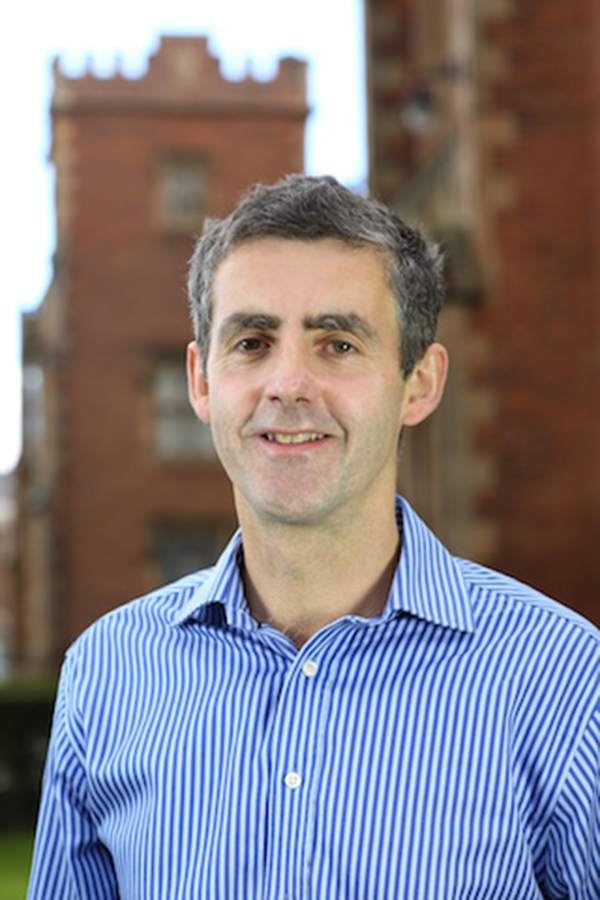Speaker information
Dominic Wyse
UK
Dominic Wyse is Professor of Early Childhood and Primary Education at University College London (UCL), Institute of Education (IOE). He is President of the British Educational Research Association (BERA) and Founding Director of the Helen Hamlyn Centre for Pedagogy (0-11). Dominic is a Fellow of the Academy of Social Sciences (FAcSS), and a fellow of the Royal Society for the encouragement of Arts, Manufactures and Commerce (RSA).
The main focus of Dominic’s research is curriculum and pedagogy. His research has contributed to understanding of the pedagogy of writing, reading, literacy and creativity across the life-course (e.g. How Writing Works: From the Invention of the Alphabet to the Rise of Social Media – Cambridge University Press; and The Good Writing Guide 4th Edition SAGE). Dominic has extensive experience of working at the interface of research, policy and practice (e.g. see The BERA Close-to-Practice Research Project or Experimental trials and ‘what works?’ in education: The case of grammar for writing published in the British Educational Research Journal BERJ). Current externally funded research includes the Helen Hamlyn Centre for Pedagogy (0 to 11 Years); the Grammar and Writing project (funded by the Nuffield Foundation); and the Children’s Agency in the National Curriculum project (Leverhulme Trust). Bestselling books for students, teachers and educators include Teaching English, Language and Literacy. 4th Edition 2018, published by Routledge (including a special edition for students in South Africa). From 2012 to 2018 Dominic was an editor of The BERA Curriculum Journal.
Before joining the IOE Dominic was a Senior Lecturer at the University of Cambridge. He was also appointed as Churchill College Cambridge’s first Director of Music-Making, where he was also a Fellow and Director of Studies for Education. Dominic’s extensive expertise in music began with his undergraduate studies at The Royal Academy of Music. Prior to the University of Cambridge Dominic was a Reader at Liverpool John Moores University, and a teacher with experience working in London, Bradford and Huddersfield in infant and junior phases.
The wide range of his work includes consultancy for major international companies and advice to governments. His consultancy work has included acting as an expert witness in legal cases. He has been invited to give evidence to House of Commons inquiries (most recently to the inquiry into assessment in primary schools), and he has been an invited expert featuring in media including BBC Newsnight, BBC Radio Four Today, the Times Educational Supplement, the Guardian, The Economist, and the Times.
Speaker presentations
Date: 12.11
Time:
14:00 – 15:30
Nur-Sultan time
Keynote speech
Children’s Agency and the Curriculum
National curricula have become an increasingly important feature of education systems in many countries worldwide. But a key question about curricula is who should decide the curriculum structure and its content. One of the main stakeholders in curricula is, and should be, children, yet children’s voices are typically absent from national curriculum development.
One way to analyse the nature of national curricula is through analysis of the curriculum texts. This presentation begins by establishing a definition of children’s agency. It then reports a research project that included a content analysis of national curriculum texts from different countries. The ways that children’s agency is reflected, or not, in these texts is discussed. Conclusions are drawn about how children’s agency can be enhanced and researched in future.
Date: 11.11
Time:
15:45 – 16:30
Nur-Sultan time
Master-class
Lessons from a Life in Primary Education: Research Close-to-Practice
The relationship between research evidence and what works in practice and policy is one of the dominant issues in contemporary debate. The phrase close-to-practice-research has been used to describe education research that involves collaboration between practitioners and researchers. An important part of this collaboration is shared understandings about what research can and cannot tell us about the best ways to teach young children. An example is given of an approach to teaching writing that became popular in the 1980s. The story of this approach, including more recent robust research evidence, tells us a great deal about effective practice and the relationship with research.

